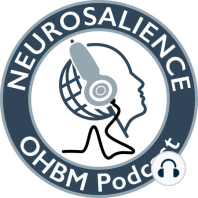116 min listen

Neurosalience #S3E2 with Prantik Kundu and Charles Lynch - Multi-echo EPI: An under-utilised tool for fMRI
Neurosalience #S3E2 with Prantik Kundu and Charles Lynch - Multi-echo EPI: An under-utilised tool for fMRI
ratings:
Length:
79 minutes
Released:
Sep 28, 2022
Format:
Podcast episode
Description
This week on #Neurosalience, we discuss one very cool and very useful fMRI acquisition strategy called Multi-echo EPI. While it’s been around for over 20 years, only a fraction of papers reporting fMRI results have used it. It can help quite a bit towards increasing sensitivity, mitigating signal dropout and motion artifacts, and stabilizing the time series to allow for tracking of very slow changes. Recent papers have come out showing that it significantly helps increase sensitivity and mitigate artifacts. In fact, several prominent leaders in the field are embracing it as they are convinced it's essential for increasing the reproducibility and ultimately, the clinical utility of fMRI. In this podcast we cover what Multi-echo EPI can and can’t do. We also discuss the options in pulse sequence parameters, what vendors offer, and fMRI processing, and available processing packages set up to work with multi-echo data.
Guests:
Charles Lynch, Ph.D. is a postdoctoral associate in Neuroscience and Psychiatry at Weill Cornell Medicine in New York who received his Ph.D. in 2018 from Georgetown University in Washington DC and has written several impactful papers convincingly describing the benefits of multi-echo EPI for fMRI.
Prantik Kundu, Ph.D. is a pioneer in multi-echo EPI processing, having developed the powerful approach called ME-ICA to process multi-echo EPI data. In 2014, Prantik received his Ph.D. from the University of Cambridge. He was a student of both Ed Bullmore and myself, working in the NIH-Cambridge graduate program. He was assistant professor at Mount Sinai in New York before moving to be a lead scientist at Hyperfine (the company that came out with the ultra-low field portable scanner). Recently, he has started in the position of Chief Technology Officer at Ceretype Neuromedicine, a company based in Boston that is pioneering precision neuropsychiatry - towards increasing the clinical relevance of functional brain imaging.
Please send any feedback, guest suggestions, or ideas to ohbm.comcom@gmail.com
Episode producers:
Alfie Wearn
Anastasia Brovkin
Brain Art
Artist: Vesna Prčkovska
Title: Frida Kahlo - A floral bouquet of pathways
Description: A floral bouquet of pathways.
Guests:
Charles Lynch, Ph.D. is a postdoctoral associate in Neuroscience and Psychiatry at Weill Cornell Medicine in New York who received his Ph.D. in 2018 from Georgetown University in Washington DC and has written several impactful papers convincingly describing the benefits of multi-echo EPI for fMRI.
Prantik Kundu, Ph.D. is a pioneer in multi-echo EPI processing, having developed the powerful approach called ME-ICA to process multi-echo EPI data. In 2014, Prantik received his Ph.D. from the University of Cambridge. He was a student of both Ed Bullmore and myself, working in the NIH-Cambridge graduate program. He was assistant professor at Mount Sinai in New York before moving to be a lead scientist at Hyperfine (the company that came out with the ultra-low field portable scanner). Recently, he has started in the position of Chief Technology Officer at Ceretype Neuromedicine, a company based in Boston that is pioneering precision neuropsychiatry - towards increasing the clinical relevance of functional brain imaging.
Please send any feedback, guest suggestions, or ideas to ohbm.comcom@gmail.com
Episode producers:
Alfie Wearn
Anastasia Brovkin
Brain Art
Artist: Vesna Prčkovska
Title: Frida Kahlo - A floral bouquet of pathways
Description: A floral bouquet of pathways.
Released:
Sep 28, 2022
Format:
Podcast episode
Titles in the series (80)
Ultra-high resolution fMRI: Challenges, Limits, and Opportunities by OHBM Neurosalience